How Can I Use the Off-Season to Address Nutritional Deficiencies?
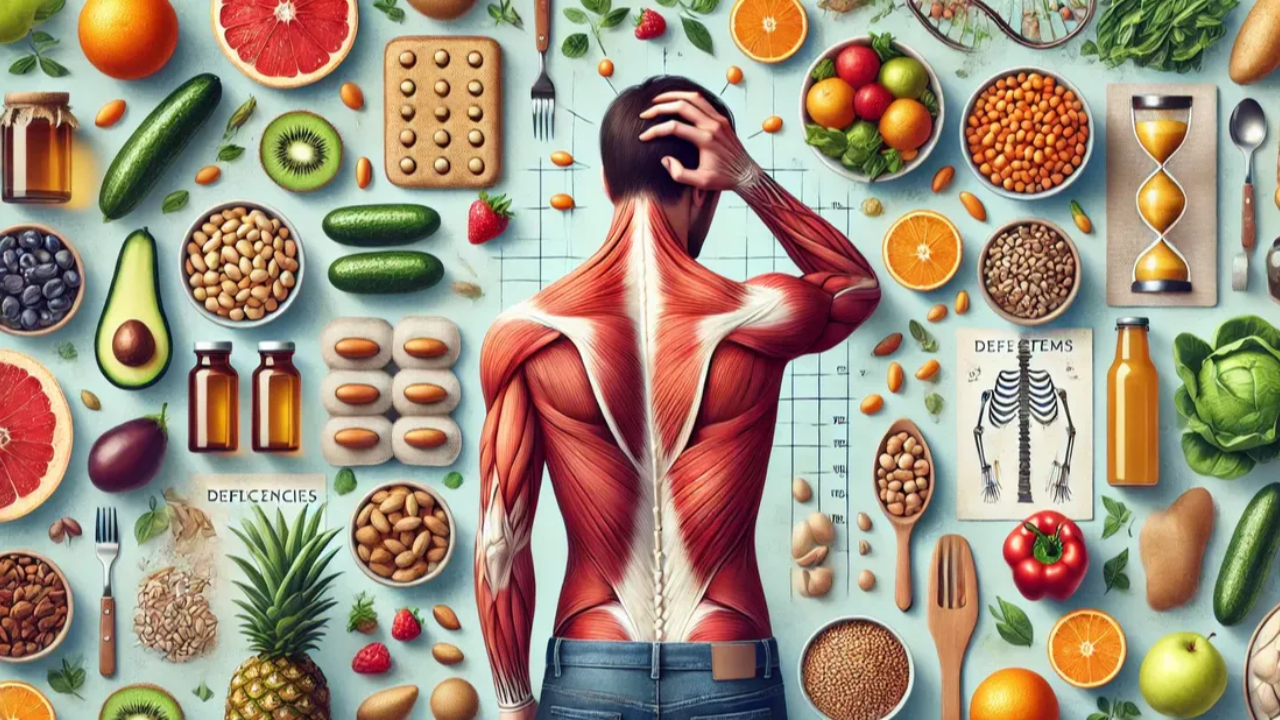
The off-season offers endurance athletes a valuable opportunity to focus on health and recovery, not just physically but nutritionally as well. During the competitive season, intense training can lead to increased nutrient demands, inadequate intake, or even nutrient depletion. The reduced physical stress of the off-season creates the perfect window to identify and correct any deficiencies, laying a strong foundation for the upcoming training cycle.
In this blog, you will learn:
- How to identify common nutritional deficiencies that endurance athletes may face due to intense training and dietary restrictions.
- The role of blood tests and professional consultations in diagnosing deficiencies in key nutrients such as iron, vitamin D, and B12.
- Practical dietary strategies to address deficiencies by incorporating nutrient-dense foods and adjusting eating habits during the off-season.
- When and how to use supplements safely to support recovery and restore optimal nutrient levels.
By the end of this blog...
You’ll understand how to effectively address nutritional deficiencies during the off-season, ensuring your body is well-nourished and ready for the demands of the next training cycle. Equipped with actionable steps, you’ll also learn how to maintain long-term health and performance through targeted nutrition.
Why Nutritional Deficiencies Matter for Endurance Athletes
Endurance athletes face unique nutritional challenges. Prolonged physical activity increases the body's demand for key nutrients such as iron, vitamin D, B12, calcium, and magnesium. Deficiencies in these nutrients can lead to fatigue, decreased performance, weakened immunity, and even injuries.
Common Causes of Nutritional Deficiencies in Athletes:
- Increased Nutrient Loss: Sweating and physical exertion deplete electrolytes and micronutrients like sodium, magnesium, and zinc.
- Restricted Diets: Athletes following specific diets (e.g., vegetarian, vegan, or low-carb) may inadvertently limit their intake of certain nutrients, such as B12 or iron.
- Inadequate Recovery Nutrition: Intense training periods often leave little time to focus on nutrient-rich meals, leading to deficiencies over time.
- High-Calorie Burn: Athletes with high energy needs may prioritize calorically dense but nutrient-poor foods, missing essential vitamins and minerals.
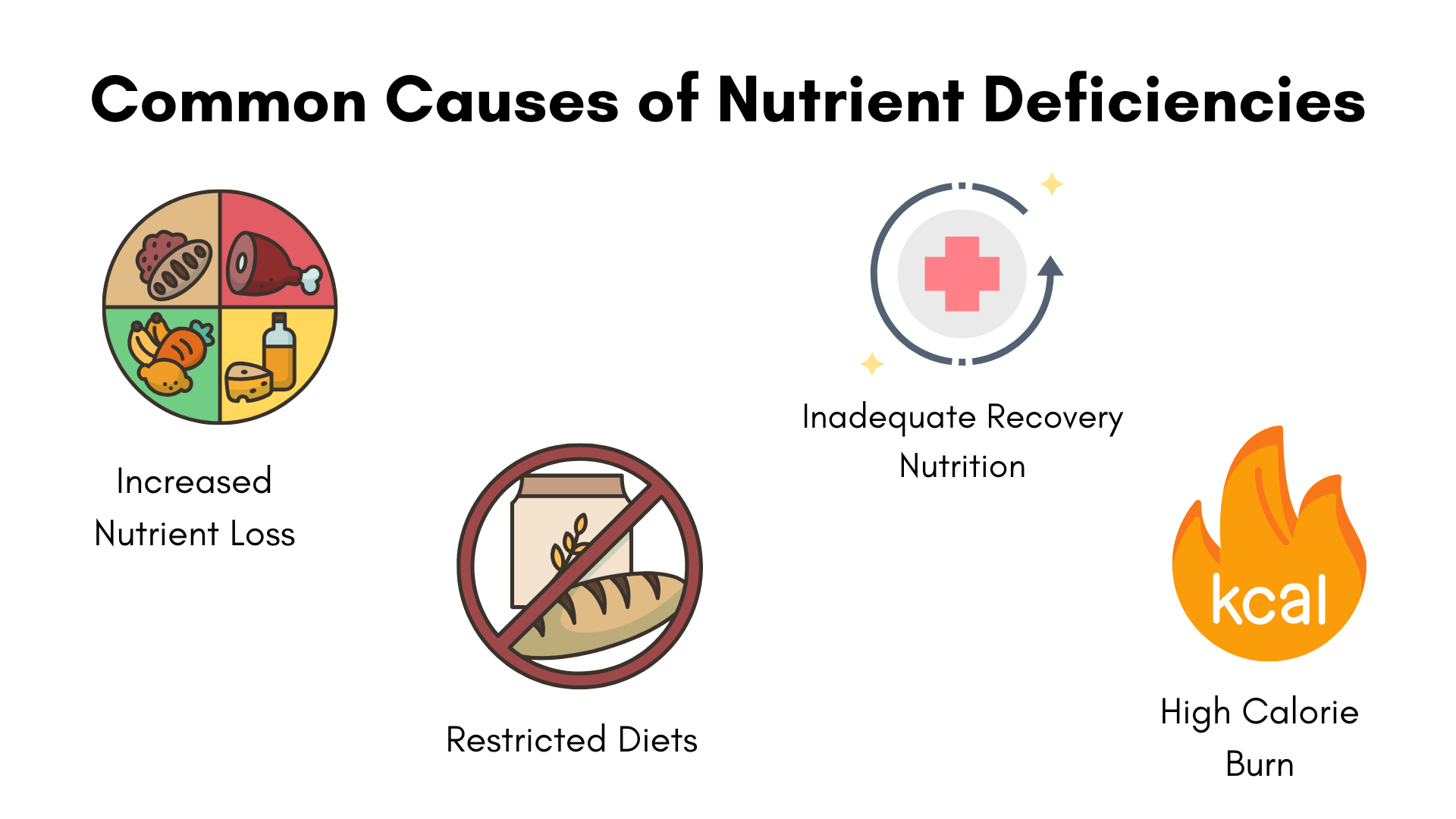
Step 1: Identifying Nutritional Deficiencies
The first step in addressing nutritional gaps is to identify them. While symptoms such as fatigue, muscle cramps, or frequent illness may indicate deficiencies, a more reliable approach is through medical testing and professional assessment.
Getting Blood Tests
Blood tests can provide accurate information about your nutrient levels and reveal deficiencies. Common tests include:
- Iron and Ferritin Levels: Assess iron stores and anemia risk. Low iron levels can cause fatigue and impaired performance.
- Vitamin D: Essential for bone health and immunity, vitamin D is commonly deficient in athletes training indoors or during winter months.
- Vitamin B12: Crucial for energy production and nerve function, B12 deficiency is more common in athletes following plant-based diets.
- Electrolytes (Magnesium, Potassium, Sodium): Imbalances can lead to muscle cramps, fatigue, and poor hydration status.
Step 2: Addressing Deficiencies Through Diet
Once deficiencies are identified, the next step is to incorporate nutrient-dense foods that can help restore optimal levels. Here’s how to target some of the most common deficiencies among endurance athletes.
- Iron
Iron is critical for oxygen transport in the blood and energy production. Low iron levels can lead to anemia, characterized by fatigue, reduced endurance, and weakened immunity.
- Food Sources of Iron:
- Heme Iron (Animal Sources): Lean red meat, poultry, and fish are highly bioavailable sources.
- Non-Heme Iron (Plant Sources): Spinach, lentils, tofu, fortified cereals, and pumpkin seeds.
- Absorption Tips: Pair iron-rich foods with vitamin C (e.g., citrus fruits, bell peppers) to enhance absorption. Avoid consuming them with calcium-rich foods or tea, which can inhibit iron absorption.
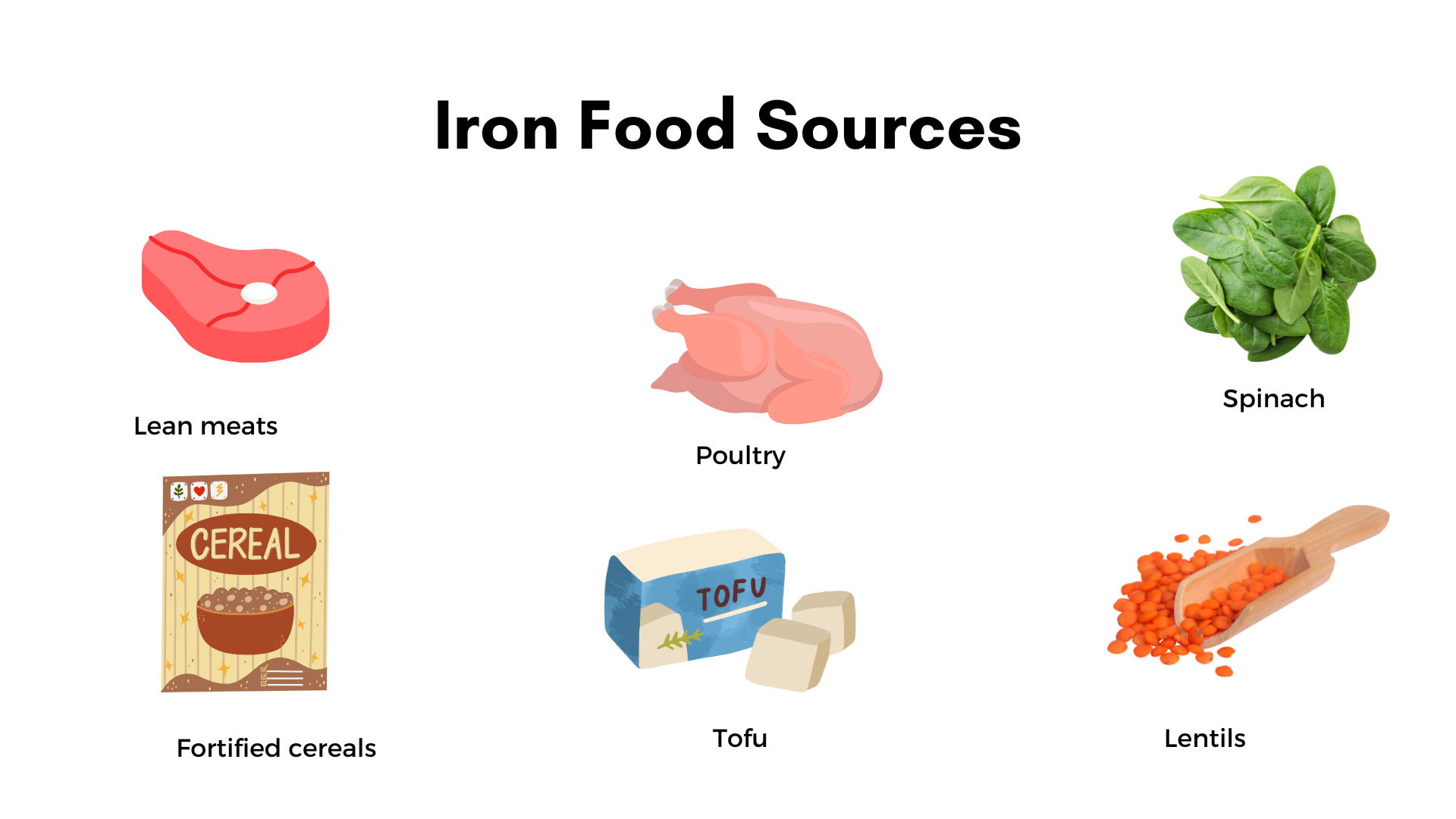
- Vitamin D
Vitamin D plays a crucial role in bone health, muscle function, and immunity. Deficiency can result in fatigue, muscle weakness, and increased risk of fractures.
- Food Sources of Vitamin D:
- Fatty fish (salmon, mackerel, tuna)
- Egg yolks
- Fortified dairy and plant-based milks
- Sunlight Exposure: Spending 15-30 minutes in the sun daily (depending on skin tone and geographic location) helps boost natural vitamin D production.
- Vitamin B12
B12 supports red blood cell production and neurological function. Athletes on vegetarian or vegan diets are particularly at risk for deficiency.
- Food Sources of B12:
- Animal products: Eggs, dairy, meat, and fish.
- Fortified Foods: Nutritional yeast, plant-based milks, and fortified cereals.
- Magnesium
Magnesium is essential for muscle function, energy production, and preventing cramps. Deficiency can result in muscle spasms, fatigue, and poor recovery.
- Food Sources of Magnesium:
- Nuts (almonds, cashews)
- Seeds (pumpkin, sunflower)
- Leafy greens (spinach, Swiss chard)
- Whole grains and legumes.
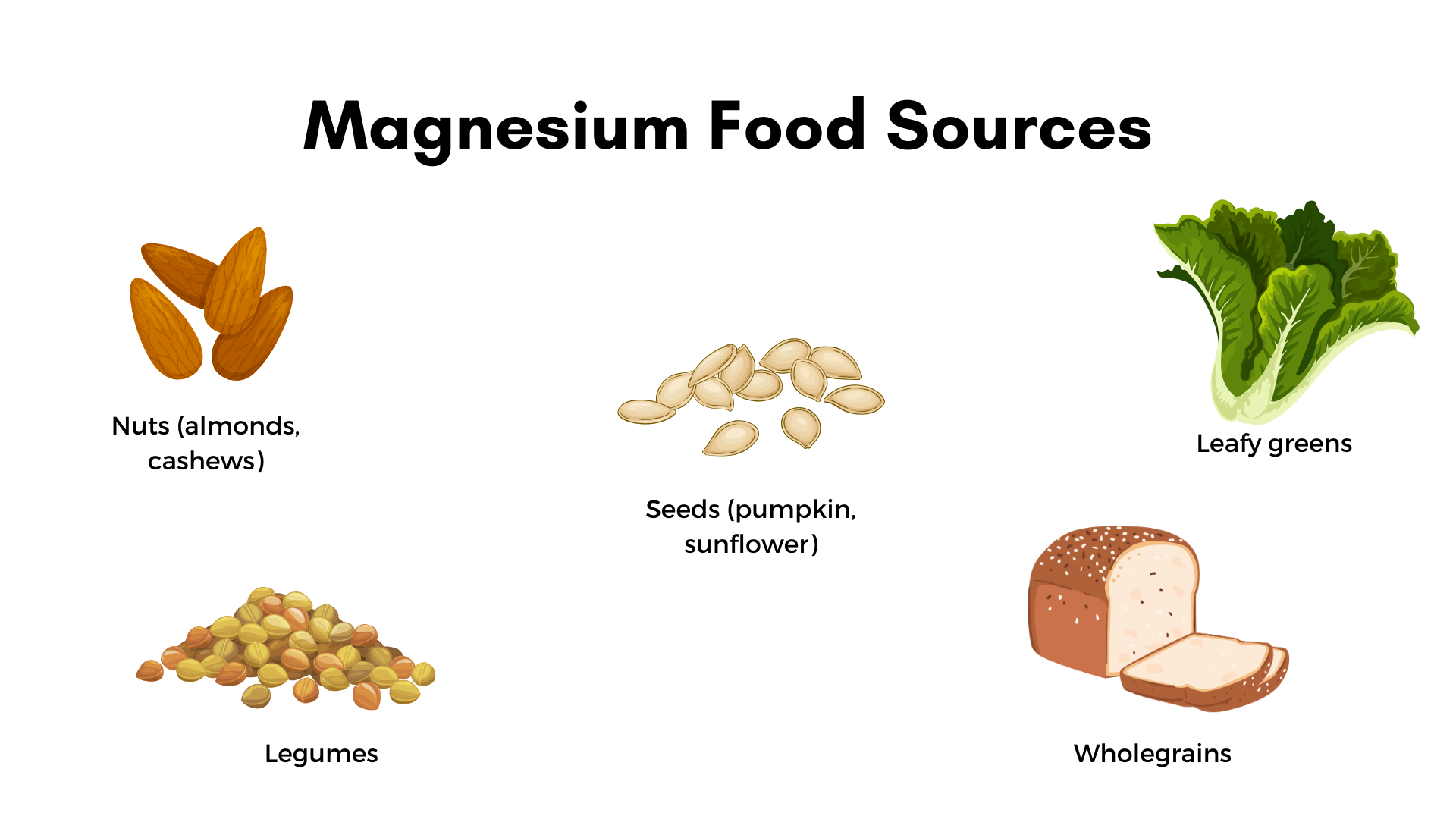
- Calcium
Calcium supports bone density and muscle contractions. Deficiency can increase the risk of fractures and impair muscle function.
- Food Sources of Calcium:
- Dairy products: Milk, yogurt, cheese.
- Fortified alternatives: Plant-based milks, orange juice.
- Leafy greens: Kale, bok choy.
Step 3: Supplementation as Needed
While a food-first approach is preferred, supplements can be beneficial when dietary changes alone are insufficient to correct deficiencies. Always consult a healthcare professional or dietitian before starting supplements to determine the appropriate dosage and avoid adverse effects.
Common Supplements for Endurance Athletes:
- Vitamin D: essential supplement for everyone, especially during winter months when sunlight exposure is limited.
- Vitamin B12: Particularly important for vegetarian and vegan athletes, as plant-based sources are minimal.
- Magnesium: Can help prevent muscle cramps and improve sleep, especially for athletes with high sweat losses.
- Multivitamins: May be useful for athletes struggling to meet multiple nutrient needs through diet alone.
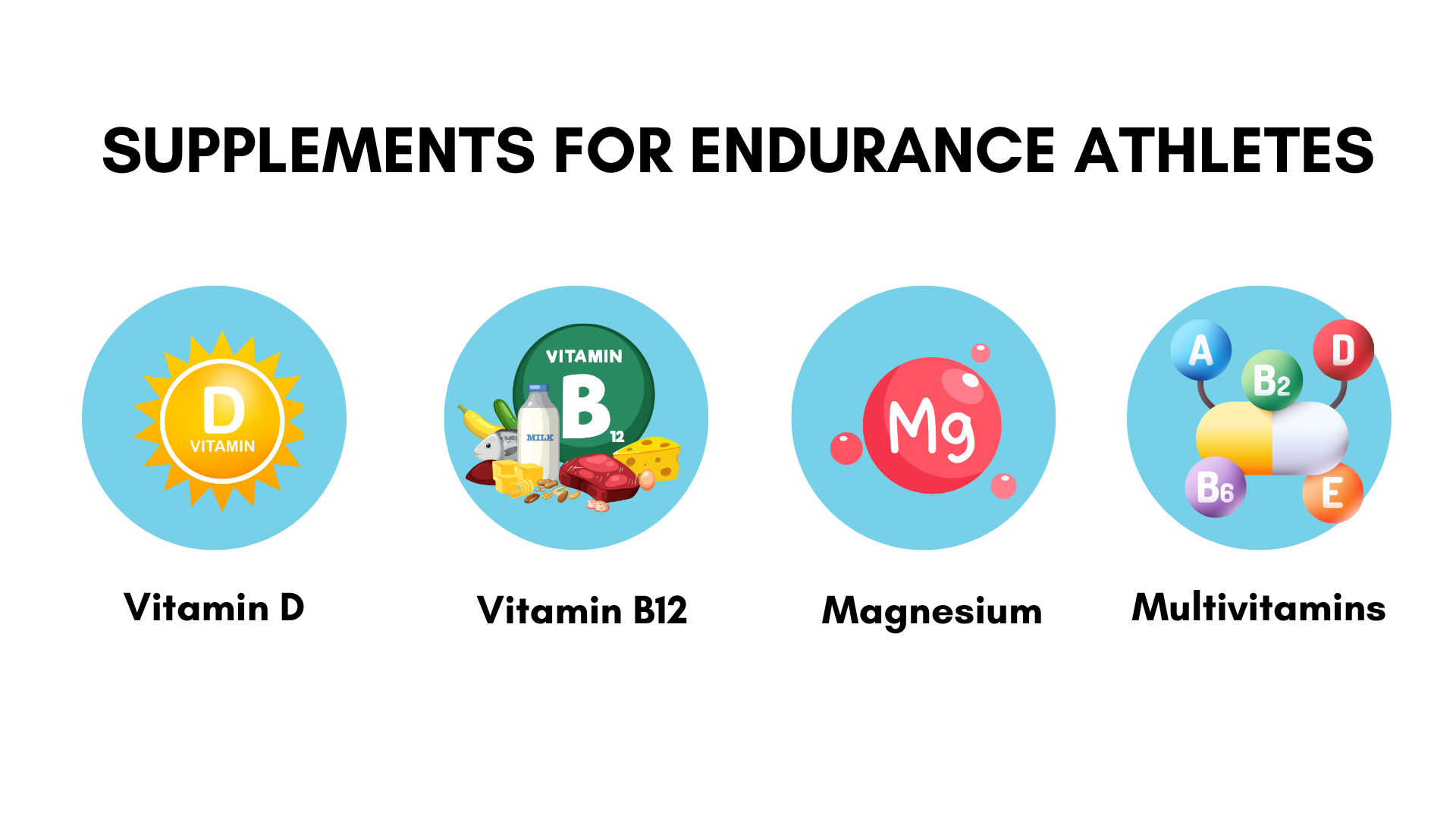
Step 4: Building a Nutrient-Focused Off-Season Diet
The off-season is also an opportunity to experiment with new foods and expand dietary variety to avoid future deficiencies. A balanced diet with a range of colorful, nutrient-dense foods ensures optimal nutrient intake and supports overall health.
Sample Off-Season Diet Plan
- Breakfast: Spinach and mushroom omelet with whole-grain toast and a side of orange slices (iron, vitamin D, magnesium, vitamin C).
- Snack: Greek yogurt with a handful of almonds and fresh berries (calcium, magnesium, antioxidants).
- Lunch: Grilled salmon with quinoa and steamed broccoli (vitamin D, magnesium, B12, iron).
- Afternoon Snack: Hummus with carrot sticks and whole-grain crackers (magnesium, iron).
- Dinner: Lentil curry with brown rice and a side of kale salad (non-heme iron, magnesium, calcium).
- Evening Snack: Fortified plant-based milk with a sprinkle of cinnamon (calcium, vitamin D).
Step 5: Monitoring and Evaluating Progress
Addressing nutritional deficiencies is not a one-time fix. It requires consistent monitoring and evaluation to ensure that nutrient levels return to and remain in the optimal range. Regular follow-up blood tests, ideally every 6-12 months, can track progress and detect any new deficiencies.
Conclusion
The off-season is a prime opportunity for endurance athletes to address nutritional deficiencies that may have developed during the intense training season. By identifying deficiencies through blood tests, incorporating nutrient-dense foods, and using supplements when necessary, athletes can restore their health and set the stage for peak performance in the upcoming season. A nutrient-focused approach during this period not only supports physical recovery but also enhances immunity, energy levels, and long-term well-being.
Are you looking for a way to enhance your performance and get the most out of your training?
We can help!
Our Personalised Supplement Strategy is designed to help you get the most out of your training, while saving time and money. We'll create a supplement plan based on our years of experience working with endurance athletes like you.
Fill out our form, and we'll send you your personalised supplement strategy within 72 hours. You'll discover what supplements are right for you and why, when selecting the right supplements is so important to your success.
References
- Thomas, D. T., Erdman, K. A., & Burke, L. M. (2016). Position of the Academy of Nutrition and Dietetics, Dietitians of Canada, and the American College of Sports Medicine: Nutrition and Athletic Performance. Journal of the Academy of Nutrition and Dietetics.
- Meeusen, R., et al. (2013). Prevention, diagnosis, and treatment of the overtraining syndrome: joint consensus statement of the European College of Sport Science and the American College of Sports Medicine. Medicine & Science in Sports & Exercise.
- Von Gruenigen, V. E., & Nelson, H. (2021). Vitamin and mineral supplementation in athletes. Current Sports Medicine Reports.
- Heaney, R. P., et al. (2011). Vitamin D in health and disease. Clinical Journal of the American Society of Nephrology.
- Nielsen, F. H. (2018). Magnesium deficiency and increased inflammation: Current perspectives. Journal of Inflammation Research.
- Rodenberg, R. E., & Gustafson, S. (2007). Iron as an ergogenic aid: Ironclad evidence? Current Sports Medicine Reports.

